Korean Hangover Cures: The Drinks, Soups, and More!
Last Updated on September 20, 2023
Have you enjoyed a night out in Seoul before? If you have, then you know that nightlife in Korea is insane. There are Korean drinking games and will go until sunrise. Before the Hangover Popsicle was introduced, Koreans already had some hangover cures up their sleeves that, I can say from experience, work pretty well.
With numerous alcoholic beverages available at varying price points from as cheap as W1,000 and sold at convenience stores in Korea, it’s no wonder that people are out having a party constantly. You can even have that party on chairs and tables right outside of the convenience store itself. Oh the convenience and trouble that has caused. Ready to party in Seoul? Prepare yourself with the pre-drink drinks, post-drink drinks, and other hangover cures.
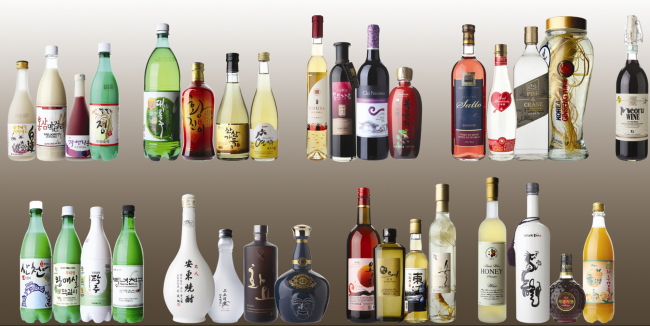
Get ready for your night out in Seoul… or the day after. Just stock up:
- What To Know
- What’s in the Korean hangover drinks?
- Korean Hangover Vocabulary To Know
- Hangover Cures
(This page contains affiliate links. That means if you click on them and purchase something, I will get a percentage of the transaction at no cost to you. Thanks for the support!)
What To Know
Koreans drink more hard liquor than anyone else in the world.
Not only are Koreans drinking it up outside of shops and bodegas, they’re out with their friends going all night in a five-round extravaganza. Really, five rounds! Try going out Korean style and see if you can even last one night. South Koreans drink 13.7 shots of liquor per week on average and none of the others on the list beneath them even come close to that. When it comes to the drink of choice, soju (소주) accounts for 97% of the country’s spirit market.
When the fun subsides and the headaches and bellyaches take over, what is a person to do? Koreans are good at drinking but they’re even better at relieving the chills the next day.
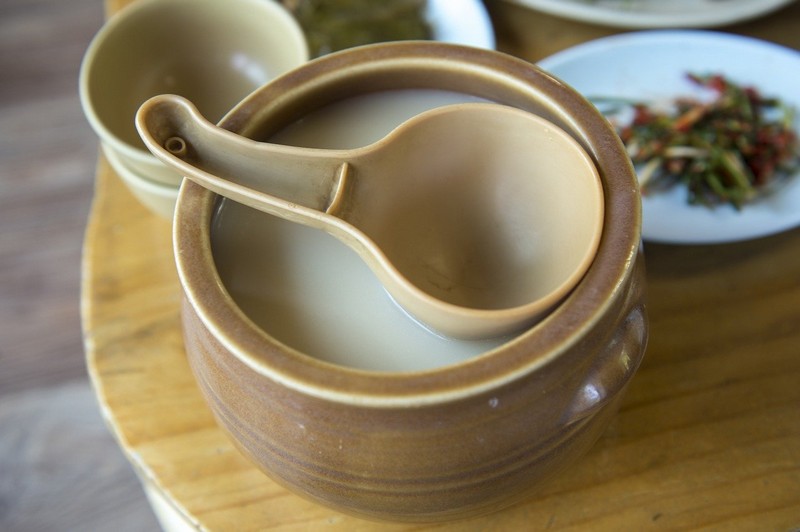
Looking for the best hangover cures? You need to check out what the Koreans are doing. Drinks marketed exclusively to the hungover crowd and crew were first debuted in 1992 and since then have become a multi-billion dollar industry in Korea.
I will say though, that if you’re drinking traditionally brewed soju and makgeolli without all of the additives then you have less likelihood of getting a bad hangover. You can even brew makgeolli in your own home and you’ll probably have better next day outcomes if you do it right. Or get something good from places like Bae Song Myeon Brewery instead of that green bottle stuff. But, should you want to get your party on and the green bottle soju is the only option… keep reading for the best Korean hangover cures.
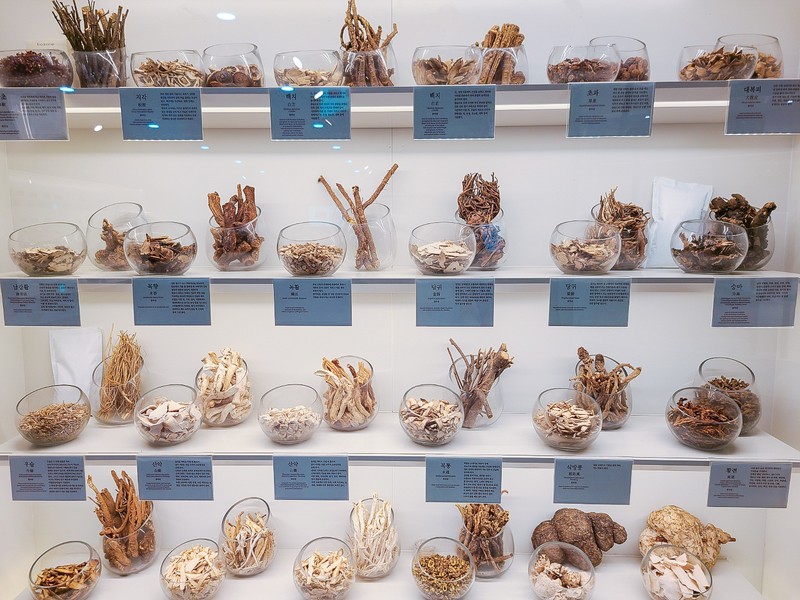
What’s in the Korean hangover drinks?
Korean hangover drinks don’t have the medical seal of approval I should start off by saying. The right to use the term “hangover drink” and “hangover cure” has been contested quite a bit but in a 2000 ruling, the Constitutional Court in Korea ruled that prohibiting a company from using the terms would infringe on their free speech.
The drinks are mainly made from ingredients used in folk remedies in the past to help with liver function and include things like red ginseng, Korean pear juice, clove extract, etc. That said, people do swear by the drinks. While not exactly medicines, they are considered functional foods. By the way, if you want to learn more about the traditional Korean medicines and folk remedies, look into taking a trip to the Yangnyeongsi Herbal Medicine Market in Seoul and stop into the Seoul K-Medi Center where they really showcase the holistic medicines in Korea.
Korean Hangover Vocabulary To Know
Haejanghada (해장하다): to eat or drink in order to get over a hangover
Haejangguk (해장국): soup to chase a hangover
Where to buy Korean hangover drinks
If you’re in Korea, you can buy these hangover drinks in both convenience stores and pharmacies. Just stop into your local shop and you’ll be sure to find them. If you head to the convenience stores, you’ll probably also find deals like getting two plus one, so take advantage and stock up if going out on the weekends is normal for you.
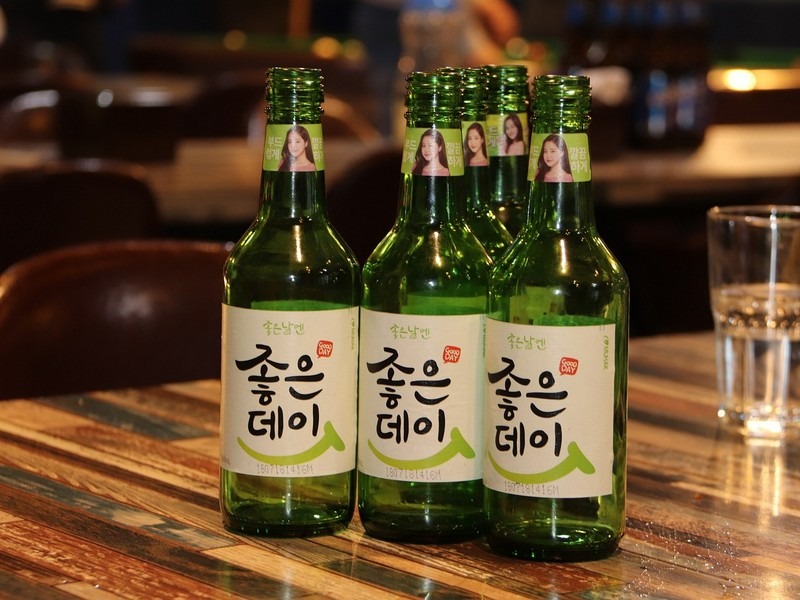
Hangover Cures
Pre-drinking preparation
If you know you’re about to have a great night out, be pre-emptive and plan ahead. It’s really common for a Korean friend to rock up with a bag of pre-fun drinks for everyone. Everyone downs their Dawn 808 and then starts into the shots and beers. These are the best pre-emptive hangover cures in Korea.
Dawn 808 (여명808)
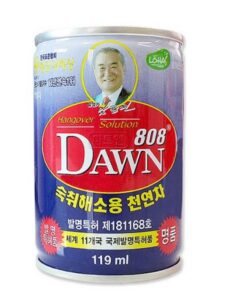
The world’s first hangover cure or at least they tout it that way. It is recommended to drink this PRIOR to getting your drink on to stave off the oncoming hangover. If the 100% all natural ingredient libation is not guzzled prior to drinking, at least mid drinking or on the way home will be good too. The taste is pretty strong and not for the prone to gagging. It is an oriental mix so it’s got that bitter, sweet and sour medicine taste all its own. The Great Grand Prix Award that’s highlighted on the can should give you comfort though as should the old man’s face smiling your way as you take that first sip. While it’s a bit more expensive than other drinks on the market, those that drink it, swear by it’s curative value.
Fun Fact: 808 apparently stands for the number of times the founder, Nam Jong-hyun, whose face you see on the can concocted his drink until he finally found the one to provide relief.
Condition (컨디션)
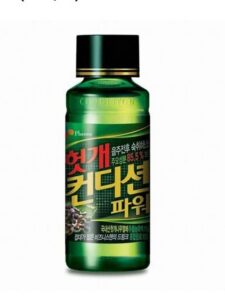
One of the most popular hangover drinks in Korea, Condition was first launched in 1992 and has been the leading hangover-relief drink almost ever since. It literally boasts 50% of the entire hangover beverage market so if you want something that is popular, definitely try this one. Condition is an all-natural ingredients cure that’s gotten more popular with younger Koreans through some pretty awesome advertisements as of late featuring some awkwardly dancing pop stars (are they supposed to be drunk?). This drink uses seeds from a raison tree that are grown in the Gangwon province as well as lotus seeds, and milk vetch roots. Various versions of this drink exist for men, women and have different ingredients.
Fun Fact: Oriental raisin tree stalks contain an active ingredient called Dihydromyrietin, or DHM and clinical tests have proven that DHM helps the body metabolize alcohol efficiently and boosts liver function at the same time.
Bae Juice (배주스)
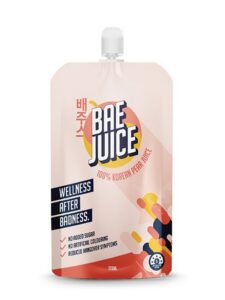
Made from 100% Korean pear juice, which is exactly what the name means, it is sourced, squeezed, and packaged in Naju, Korea. Naju is home to high-quality Korean pears and if you don’t like the bitter taste of the above two hangover drinks, then you’ll love this one. It is delicious and on top of that pear juice has been proven to help with hangovers due to the enzymes in pears that speed up the metabolism of alcohol and reduce blood acetaldehyde levels. Pear juice has been used as a hangover cure in Korea and China for centuries so you should definitely test its effectiveness for yourself.
Fun Fact: This company is actually Australian though the pears and the juice are all from and manufactured in Korea.
So now you’ve had your pre-drink and you’re ready for a night out on the town. Savor different types of Korean food and drink at four different places in one night. Learn some Korean phrases and play some Korean drinking games. Head out to some of the hot spots in Seoul for a great night out like Hongdae, an area known for live music venues, busking on the streets, and plenty of bars to choose from.
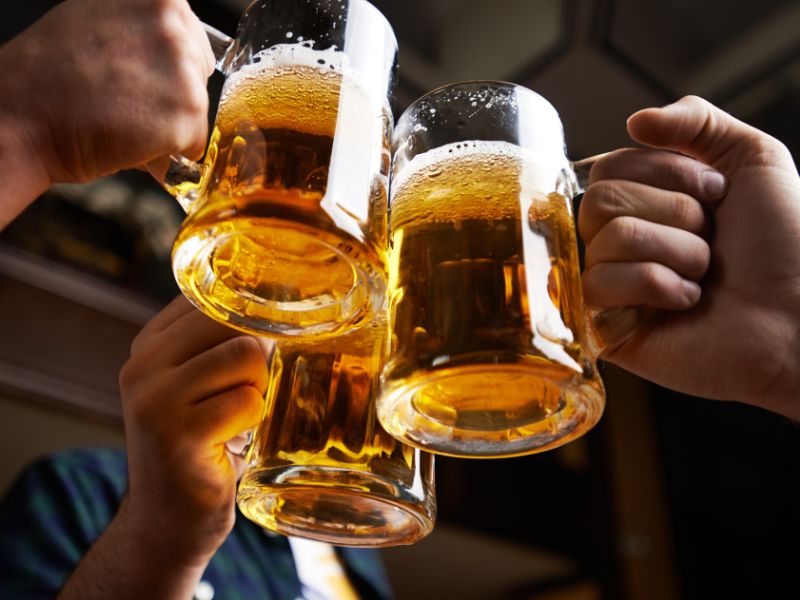
Post-drinking cures
Hutgaesoo (헛개수)
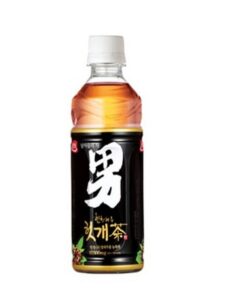
Oriental Raisin Tea is one of the most popular hangover go-to for Koreans. The recovery drink is well known for being an aid in relieving those hangover aches and pains. The drink is made from 100% Korean Oriental raisin tree fruits and helps to prevent dehydration which means this is also a great drink to slurp down after exercising or other sweat inducing activity. My husband just loves the taste and drinks it regularly instead of water which he really doesn’t consume on its own ever. Be prepared for that earthy plant taste though. It’s not like guzzling back some sweet juice or lime-ade. It’s delicious but you might need to give it a few swigs to get used to. Once you do, you won’t go back though.
Morning Care (모닝케어)
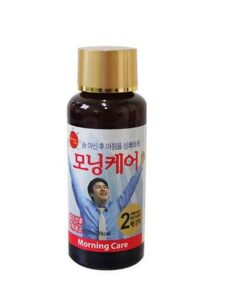
Morning care uses raisin tree extracts, soybeans, guarana and other ingredients to help with hydration while the milk thistle boosts and aids in liver protection and soothes that dry mouth and the after-drinking headaches. The company boasts five different products so there’s something for everyone. Their products include: Goodbye Alcohol, Morning Care Plus, Morning Care Turmeric, Morning Care X and Morning Care Lady. Though it’s called Morning Care and one would assume it should be enjoyed the morning after, it is also recommended to be consumed prior to drinking if possible.
Hutgaecha (헛개차)
Though it sounds super similar to Hutgaesoo mentioned above, it is not to be confused. This drink is also made from Korean Oriental raisin tree fruits but this one is made to be much stronger and the taste is a lot stronger too. If you can stand the lighter more popular version above, then pick up this one the next time you’re around for an even earthier palate cleanser. It’s recommended to down this a couple hours before your night out kicks into full gear.
Korean Food
Before all of these new-age drinks to get the heavy-drinking crowd through the next day were introduced though, there were hot bubbling savory soups that hit just the right spot and made that work day the next day bearable. One thing that Koreans do really well is hydrate after drinking down that sul (술), or alcohol.
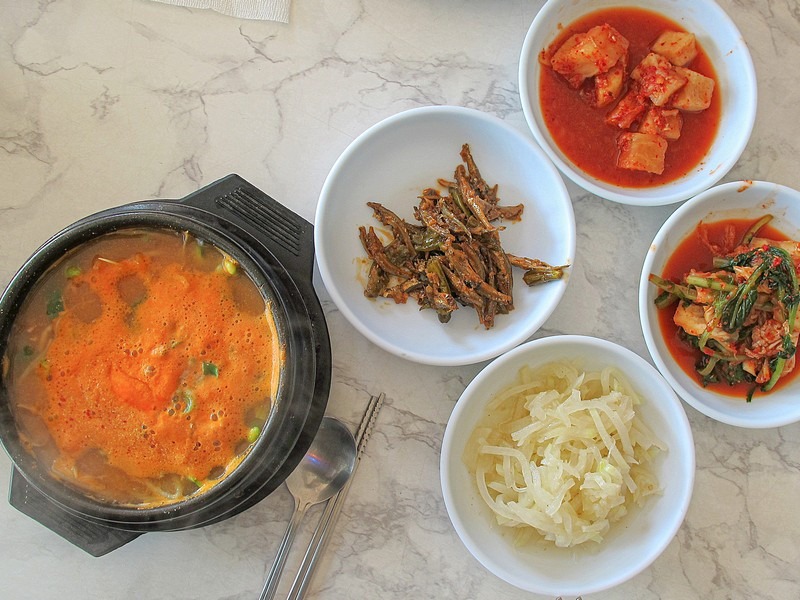
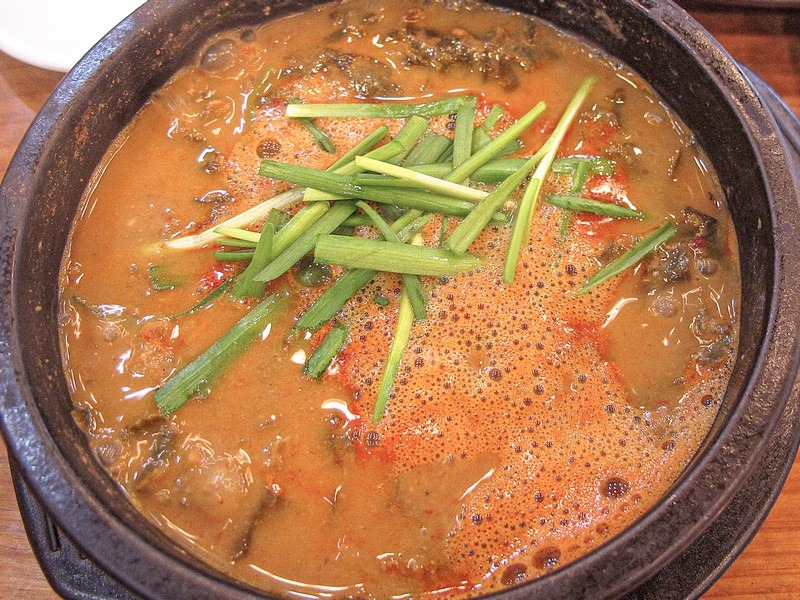
Post night-out meals generally include a soup and the most common soup goes by the name of haejangguk (해장국), which literally means “soup to chase a hangover”. Now, where it can get confusing to newcomers is that from one place to the next what is IN the haejangguk can vary slightly. It’s important to ask which variance of the soup you’ll be getting so there aren’t any surprises when you dig right on in to stop that tummy rumble. But basically, the whole point is to re-hydrate you and all of the soups will do just that.
Popular types of haejangguk include:
Gomtang/Galbitang (곰탕/갈비탕): Rich in protein, these two soups are a hearty broth that simmers around slices of beef (in the gomtang) or around beef that is still on the bone (in the galbitang). This soup will have you slurping every last drop out of the bowl because it’s just that good. Really, just pick the bowl up and pour it down that gullet. If you’re eating this next day, everyone already knows you’re hungover, so you might as well enjoy it.
Blood Soup (선짓국): This version contains congealed cow or pig blood (similar to black pudding) and is one of those soups that is either loved or hated. Most westerners steer clear of this one due to the bloody lead taste. It’s like you just bit your tongue.. over and over again. If that isn’t appetizing, I don’t know what is.
Sundaeguk (순대국): This version includes blood sausage made from pig intestines stuffed with pigs blood and other ingredients and is set in a white broth soup. While it might sound just as unappetizing as the one above, this one is a bit more palatable.
Bean Sprout Soup (콩나물국): This vegetarian friendly option is a bean sprout soup that is pretty simple and to the point. Bean sprouts and tofu simmer away and in some restaurants, you’ll be offered an egg as it is served to crack right in to the bowl. The asparagine in this soup supposedly gets rid of the acetaldehyde that builds up in the body while drinking. Kongnamulgukmay also be served in a variety of ways so ask before you get it if you don’t want it spicy.
Pollack Soup (북어해장국): This fishy stew comes in a milky broth base with a lighter taste. Usually there are some mushrooms, tofu and shallots added.
Cod Soup (대구탕): This soup is really simple and to the point but oh so delightful. Cod soupis boils away in a simple clear broth concoction. This soup is especially popular on the southern coast of Korea and there are numerous places to eat it while visiting the coastal regions.
There you have it. All of the hungover cures Koreans are really on about. Popsicles are a fad, but these mainstays are tried and true. Check them out the next time you’re out and about and consuming some of that flammable liquid.
Did you like this post? Pin It!
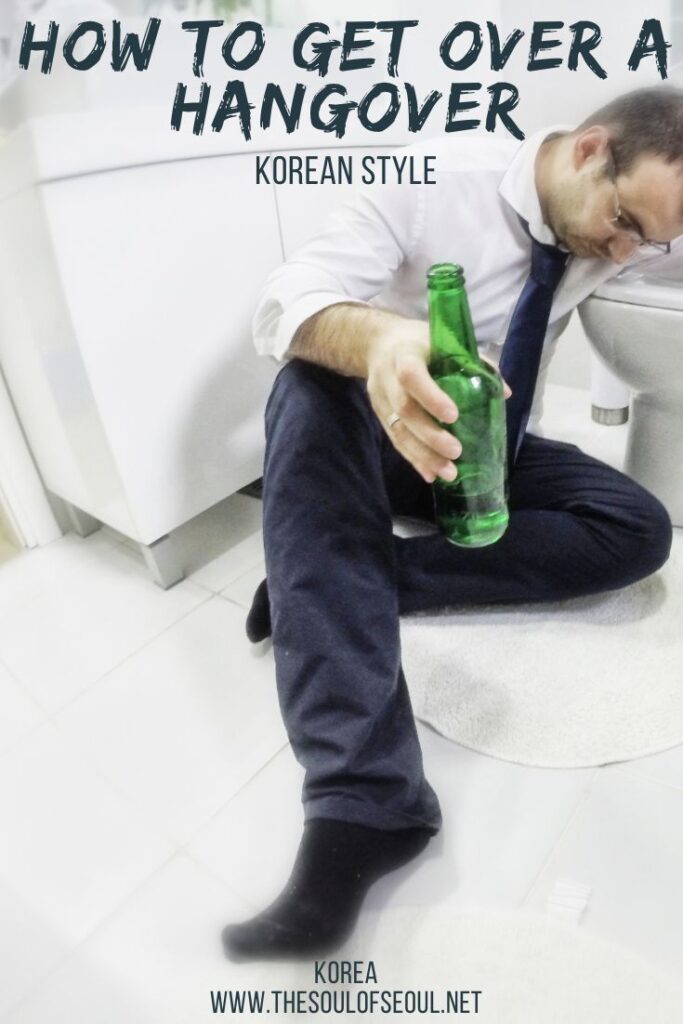
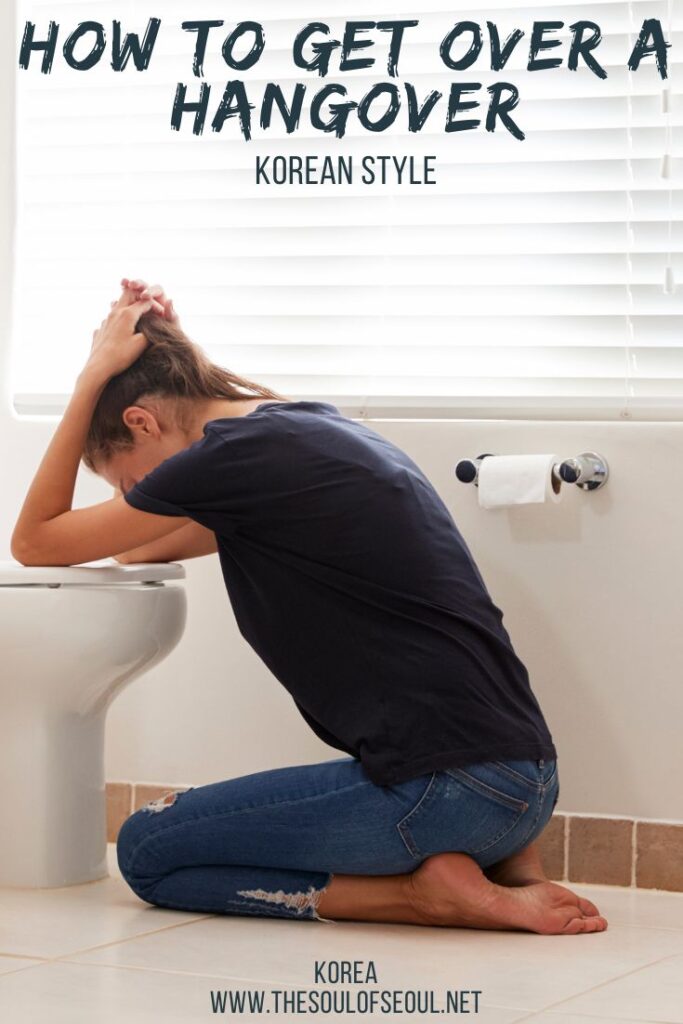
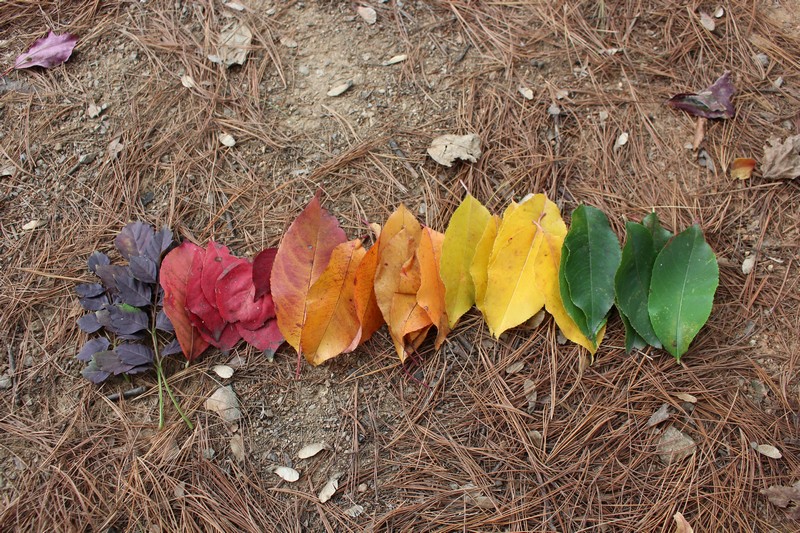
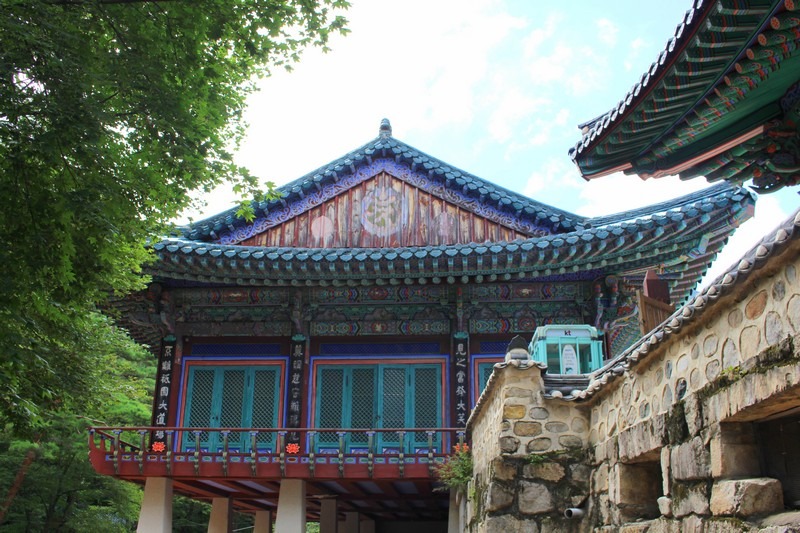
2 Comments
Chantell - Adoration 4 Adventure
Wow! I actually had no idea that South Korea had such a drinking culture. I have seen various pre-drinking hangover cures sold in Australia but never tried one (friends have said that they don’t work anyway). Great list! I would love to try some of these.
Hallie
The drinking culture is pretty intense here. Some people swear by the hangover cures… I dunno, but I do think the soups are much better than the greasy fare that we Americans eat after drinking. ^^